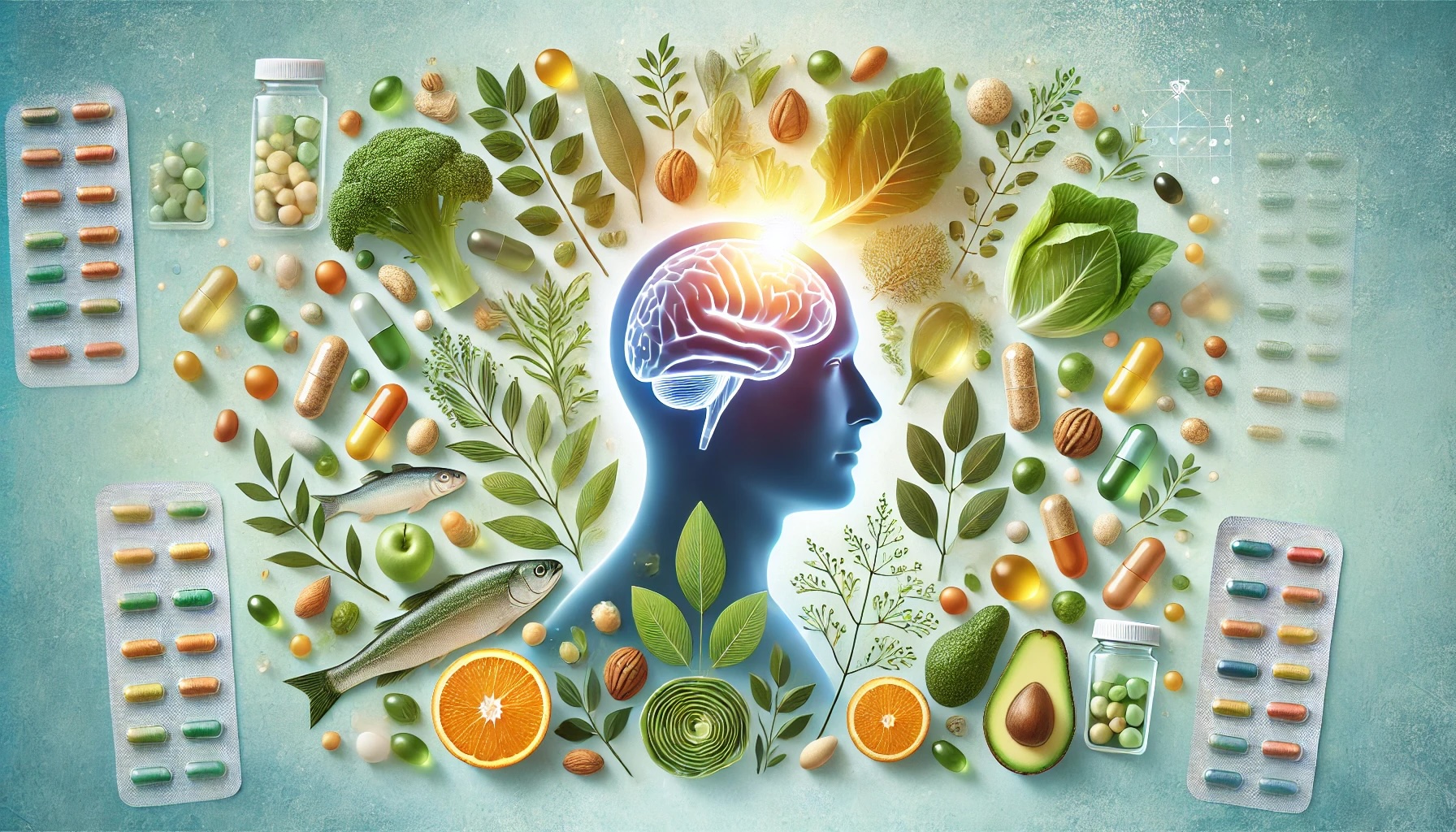Anxiety is a common mental health issue in modern society. The fast pace of life, high work pressure, and environmental factors contribute to the increasing prevalence of anxiety-related problems. While traditional psychological therapy and medications are common approaches to managing anxiety, research in nutrition highlights the significant role that a well-balanced diet and adequate vitamin intake can play in improving mood and alleviating anxiety. This article delves into the relationship between vitamins and emotional management and explores how dietary and supplemental adjustments can help regulate emotions.
Causes and Symptoms of Anxiety
Anxiety is a complex mental and physical response, typically characterized by tension, unease, and worry, often accompanied by physical symptoms like a racing heart, sweating, or difficulty sleeping. Chronic or severe anxiety can lead to decreased immunity, poor sleep quality, and reduced productivity. While anxiety has various triggers, studies indicate that nutritional deficiencies may be a contributing factor. The brain relies on adequate nutrients to maintain the balance of neurotransmitters, which, when disrupted, can exacerbate anxiety symptoms.
How Do Vitamins Impact Mood?
The Role of B Vitamins in Emotional Health
Vitamin B6 plays a crucial role in synthesizing serotonin and dopamine, neurotransmitters essential for regulating mood. Serotonin is often referred to as the “happiness” neurotransmitter, while dopamine is linked to motivation and pleasure. A deficiency in vitamin B6 can result in mood swings and heightened anxiety. Dietary sources of vitamin B6 include bananas, chicken, fish, and potatoes.
Vitamin B12 is vital for maintaining nervous system health. It contributes to red blood cell production, DNA synthesis, and the protection of nerve cells. A deficiency in vitamin B12 can lead to fatigue, poor concentration, and low mood. Animal-based foods such as meat, fish, dairy products, and fortified cereals are primary sources of vitamin B12.
Folate (Vitamin B9) is another essential nutrient for neurotransmitter function. Research has shown that low folate levels are associated with a higher risk of anxiety and depression. Folate-rich foods include leafy greens, lentils, and oranges.
The Mood-Regulating Effects of Vitamin D
Vitamin D, known as the “sunshine vitamin,” is essential for bone health and mood regulation. It promotes serotonin synthesis and reduces inflammation in the brain. A lack of vitamin D has been linked to higher rates of anxiety and depression. Sunlight exposure is the best way to boost vitamin D levels naturally, while dietary sources include salmon, sardines, eggs, and fortified dairy products.
Vitamin C and Its Anti-Anxiety Properties
As a potent antioxidant, Vitamin C helps lower oxidative stress levels in the body, which can reduce feelings of anxiety. It also supports dopamine synthesis, contributing to better emotional regulation. Foods rich in vitamin C include citrus fruits, strawberries, bell peppers, and tomatoes.
The Brain-Protective Role of Vitamin E
Vitamin E is an important antioxidant that protects the brain from free radical damage. It plays a role in mitigating anxiety symptoms and supporting overall neural health. Almonds, seeds, and plant-based oils like sunflower oil are excellent sources of vitamin E.
How to Improve Mood Through Diet
The Importance of a Balanced Diet
A well-balanced diet is the foundation for obtaining essential vitamins and minerals. Avoiding processed foods, sugary snacks, and high-fat meals while opting for whole grains, fresh vegetables, fruits, and quality protein can provide the necessary nutrients to support brain health.
Recommended Vitamin-Rich Foods
• Foods rich in B vitamins: bananas, eggs, leafy greens, and whole grains.
• Foods rich in vitamin D: salmon, sardines, eggs, and fortified milk.
• Foods rich in vitamin C: oranges, strawberries, bell peppers, and broccoli.
• Foods rich in vitamin E: almonds, sunflower seeds, and hazelnuts.
The Role of Supplements
When dietary intake falls short, supplements can help fill the gap. For example, vitamin D supplementation may be particularly beneficial for individuals living in regions with limited sunlight during winter months. However, supplements should be used cautiously and under the guidance of a healthcare professional, as excessive vitamin intake may cause adverse effects. For instance, too much vitamin D can lead to hypercalcemia, and high doses of vitamin B6 may cause nerve damage.
Other Nutrients That Impact Mood
In addition to vitamins, minerals and fatty acids also play significant roles in emotional regulation. Magnesium helps reduce nervous system excitability, alleviating anxiety symptoms. Magnesium-rich foods include nuts, seeds, and leafy greens. Zinc supports neurotransmitter function and can be found in shellfish, meat, and pumpkin seeds. Omega-3 fatty acids, known for their anti-inflammatory properties and mood-enhancing effects, are found in fish, flaxseeds, and walnuts.
How to Adjust Diet and Lifestyle for Anxiety Relief
Alleviating anxiety requires a holistic approach that includes quality sleep, regular exercise, and a nutritious diet. Establishing a consistent daily routine with balanced meals can provide stable support for brain function. Additionally, reducing or avoiding excessive caffeine and alcohol consumption can help stabilize mood.
Conclusion
Using vitamins to improve mood and alleviate anxiety is a simple yet effective strategy. Essential vitamins like B6, B12, D, C, and E play critical roles in supporting nervous system health and maintaining neurotransmitter balance. Combined with a balanced diet and healthy lifestyle habits, adequate vitamin intake can reduce the frequency and intensity of anxiety, ultimately enhancing overall quality of life. When considering vitamin supplements, it is important to assess individual needs and seek professional guidance to ensure safety and efficacy. Integrating nutrition into mental health strategies is a vital step toward better emotional management and well-being.










